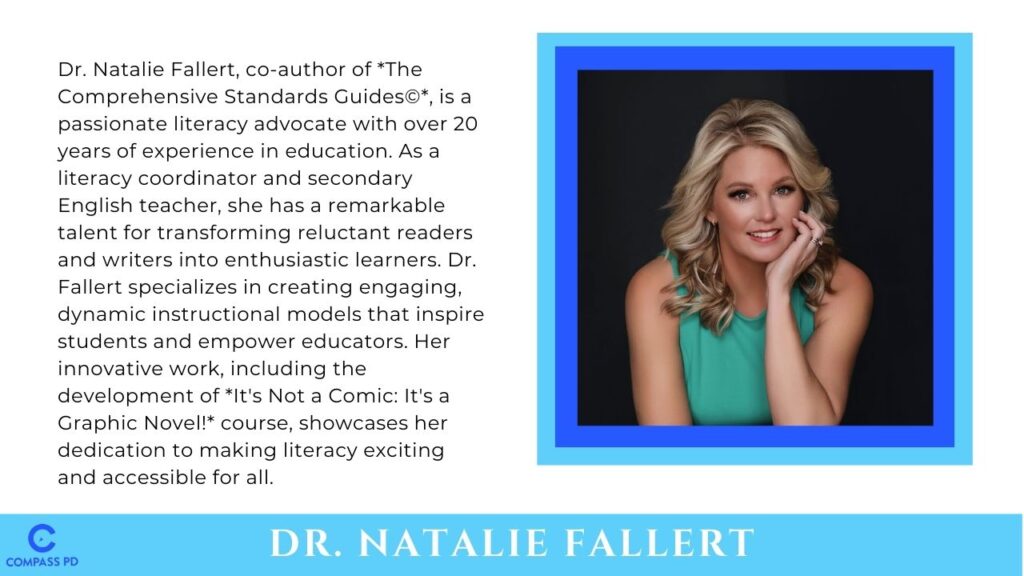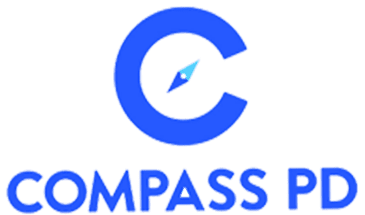Reignite Your Passion: The Power of Personal Learning
By Dr. Natalie Fallert
Trying the same things? Feel like you have nothing more to give? Defeated? You’re not alone.
I work with teachers across the country, and lately, this feels like the shared mantra in education. Since 2020, professional development (PD) has shifted dramatically—from in-person collaboration to virtual and asynchronous formats. While necessary, this change created a steep learning curve, leaving many educators to build the proverbial plane while flying it.
The result? Burnout. Frustration. Disconnection.
If that sounds like you, it’s time to stop waiting for the system to change—and instead be the change.
Rethinking Professional Development
PD is an expectation in every school district—but let’s be honest: it doesn’t always lead to meaningful growth. Too often, it’s one-size-fits-all, driven by mandates, budgets, or new resources. This isn’t a knock on school leaders; it’s a reality of the system.
Yes, I enjoy a good keynote speaker as much as anyone, but those moments rarely translate to direct classroom impact. The best PD I’ve experienced—whether as a participant, planner, or facilitator—has been specific, relevant, and rooted in choice.
So, if you’re feeling stuck, overwhelmed, or uninspired, I have one message:
Don’t wait for someone to hand you the perfect learning opportunity. Make your own.
Personal Learning = Professional Renewal
If you believe in this work and refuse to give up on education, it starts with you. You don’t have to become a cheerleader for your whole school—you just have to reignite your own spark.
As we head into summer, I challenge you to set a personal learning goal. Not for a certification. Not for a district requirement. For you.

Questions to Get You Started
- What genuinely interests you?
- What are your students or colleagues struggling with?
- What’s something you’ve seen another educator do that you’d love to try?
- What’s new in your field that you want to explore?
Simple Steps to Personal PD
1. Commit to Something
Choose one area of focus for your summer. Start small, but stay intentional.
2. Read a Book
Whether it’s content-specific, pedagogy-based, or just a compelling story, reading is powerful.
For content area teachers, you, too, can dig into novels. Don’t overlook good historical fiction books or even narrative nonfiction. A few great selections I would highly recommend are:
- The Immortal Life of Henrietta Lacks – Science
- The Atomic City Girls – Science & History
- The Radium Girls – Science & History
3. Scan Social Media (Cautiously)
Look for educator groups or hashtags for ideas. Approach it like a researcher—filter the noise, and don’t let negativity sideline you.
4. Try It Out
Put your learning into action:
- ELA/Social Studies? Read and write regularly. Journal. Write reviews. Analyze the places you visit.
- Math/Science? Garden. Track wildlife. Bake and experiment. Connect life to content.
Leveling Up: Deeper Summer Learning
Want more structure or community in your learning? Try one of these:
- Join a Book Study: Engage with others to deepen your thinking and stay accountable.
- Enroll in a Course: Many offer online options and even graduate credit. Look beyond post-secondary institutions. Many companies, organizations, authors, and publishers offer courses that might be even more tailored to your interests.
- Attend Workshops or Conferences: Look for local or national opportunities that align with your interests.
Funding Your Growth
Don’t assume you have to pay out-of-pocket. Try these options:
- Ask Your District: Building, department, or district funds may be available. Ask early.
- Tap Social Media: Many teachers crowdsource support. A former student of mine raised money for a conference through a single heartfelt post.
Submit a Proposal: Presenters at workshops or conferences often get free or discounted admission.

Final Thoughts
No one’s coming to hand you the perfect PD on a silver platter. But the good news? You don’t need them to. Whether you read one book, join one group, or just try one new thing—you’re moving forward.
And that, educator, is how you keep your fire alive.

